2024 Community Banking Research Conference
Taking place Oct. 2-3, the research conference will bring together community bankers, academics, policymakers and bank regulators to discuss the latest research on community banking.
Community Banking Research Conference
The twelfth annual Community Banking Research Conference—sponsored by the Federal Reserve System, the Conference of State Bank Supervisors (CSBS) and the Federal Deposit Insurance Corp. (FDIC)—will be hosted on Oct. 2 and Oct. 3. The conference brings together community bankers, academics, policymakers and bank regulators to discuss the latest research on community banking.
The conference presents an innovative approach to the study of community banks. Academics explore issues raised by the industry in a neutral, empirical manner and present their findings at the conference. Community bankers contribute to an annual survey prior to the conference and then participate directly in the conference by serving as keynote speakers and panelists, and by providing feedback to the research presented. For more information, please contact conference@communitybanking.org.
Conference Agenda
Gateway Auditorium, 6th Floor | Federal Reserve Bank of St. Louis
October 2-3, 2024
Download as PDF
- Wednesday, October 2
-
Introduction
-
Welcoming Remarks
-
2024 CSBS Annual Survey of Community Banks Presentation of Results
2024 CSBS Annual Survey -
Morning Keynote
-
Break
-
Research Paper Session 1
Community Banks and the Local EconomyUnexpected Gains: How Fewer Community Banks Boost Local Investment and Economic DevelopmentRohan Williamson, Georgetown UniversityRelationship Lending: That Ship Has Not Sailed for Community BanksDmytro Holod, State University of New York at Stony BrookResearch Session One Videos and Academic Moderator Slides -
Lunch
-
Afternoon Keynote
-
Research Paper Session 2
Deposit StabilityVariable Deposit Betas and Bank Interest Rate Risk ExposureMustafa Emin, University of AlabamaThe Economics of Market-Based Deposit InsuranceEdward Kim, University of Michigan-Ann ArborDepositor Characteristics and Deposit StabilityRajesh Narayanan, Louisiana State UniversityResearch Session Two Videos and Moderator Slides -
Break
-
2024 CSBS Community Bank Case Study Competition Winning Presentation
 Introduction: Tony Salazar
Introduction: Tony Salazar
Commissioner of Financial Regulation, Maryland Department of Labor; Chair, CSBS
Student Team - Commonwealth University of PennsylvaniaHannah Caccia and Eric Shaw
Community Bank PartnerLeeAnn Gephart, Executive Vice President and Chief Banking Officer, First Citizens Community Bank in Mansfield, Pa.
Faculty AdvisorsDr. Atika Benaddi and Dr. Victoria Geyfman
-
Day One Reflections
-
Dinner Reception
- Thursday, October 3
-
Breakfast and Networking
-
Community Banker Keynote Conversation
-
Morning Remarks
-
Research Paper Session 3
Consumer Protection Moderator: Anne Beatty
Moderator: Anne Beatty
Deloitte & Touche Chair of Accounting, The Ohio State University, Fisher College of Business
Do Financial Consumers Discipline Bad Lenders? The Role of Disclosure AwarenessCheng "Cathy" Zhang, University of FloridaDisciplining Banks through Disclosure: Evidence from CFPB ComplaintsAnya Kleymenova, Board of Governors of the Federal Reserve SystemBranching Out Inequality: The Impact of Credit Equality PoliciesJacelly Cespedes, University of MinnesotaResearch Session Three Videos -
Break
-
Panel Discussion
The Future of the Community Bank Business ModelPanelistsPanel Discussion -
Presentation of the John W. Ryan Award and Concluding Remarks
 Karen Lawson
Karen Lawson
Executive Vice President, Policy and Supervision, Conference of State Bank Supervisors - CSBS
-
Poster Papers
Credit Union Expansion and Bifurcation in Local Bank LendingJiakai Chen, Shidler College of Business, University of Hawaii at Manoa
Research Papers, Authors and Key Findings
Research Paper Session 1
Community Banks and the Local Economy
Unexpected Gains: How Fewer Community Banks Boost Local Investment and Economic Development
Authors: Rohan Williamson, Georgetown University ; Bernadette Minton, Ohio State University; Alvaro Taboada, Mississippi State University
Key Findings: The authors examine the impact of the decline in the number of community banks on community investment and development. Counterintuitively, they find that a decrease in community banks leads to an increase in community investment, a finding that is partially driven by the increased lending activity of other community banks. They observe that this counterintuitive result depends on a large presence of community banks in the examined county and is greater when the acquirer of the lost bank is a community bank rather than a large bank. In general, the evidence indicates that community bank consolidations create larger and stronger institutions that increase community development.
Canary in the Coal Mine: Bank Liquidity Shortages and Local Economic Activity
Authors: Shohini Kundu, UCLA; Rajkamal Iyer, Imperial College ; Nikos Paltalidis, Durham University Business School
Key Findings: The authors present a novel real-time measure for assessing the build up of regional economic and financial risks, using the relationship between regional economic activity and deposit growth in local banks. Facing a liquidity shortage and a persistent economic slowdown, banks may increase their deposit rates to attract additional deposits. The authors find that when regional banks operating within a county increase their deposit rates, it is associated with a slowdown in economic activity in that region up to two years ahead. They note that deposit rates have a number of advantages over other predictors: they are readily available in real time, forward-looking and available at a more granular level.
Relationship Lending: That Ship Has Not Sailed for Community Banks
Authors: Dmytro Holod, State University of New York at Stony Brook; Joe Peek, Federal Reserve Bank of Boston; Gokan Torna, Stony Brook University
Key Findings: The authors examine whether, or to what degree, relationship lending enhances the value of a banking organization and thus its viability. Using call report data, they find that small commercial and industrial (C&I) loans add value to community banks both in absolute terms and relative to the value contributed by larger C&I loans. The value creation emanates from the smallest relationship-based C&I loans, those with original values of $100,000 or less, and at the smallest community banks. Small commercial real estate loans, on the other hand, do not contribute additional value to community banks, likely because of their transactional nature.
Research Session One Videos and Academic Moderator Slides
Research Paper Session 2
Deposit Stability
Variable Deposit Betas and Bank Interest Rate Risk Exposure
Authors: Mustafa Emin, University of Alabama; Christopher James, University of Florida; Tao Li, University of Florida
Key Findings: Whether maturity transformation exposes banks to interest rate risk depends in part on the effectiveness of bank deposits as a hedge against interest rate shocks. The authors provide evidence that deposit betas vary significantly with interest rates, and that variations in deposit betas are significantly related to the variations in the interest rate sensitivity of bank stock returns. The dynamic nature of deposit betas indicates that banks’ interest rate risk exposure can increase substantially when interest rates increase sharply, even for banks that, prior to the interest rate hike, appeared well-hedged against interest rate increases.
The Economics of Market-Based Deposit Insurance
Authors: Edward Kim, University of Michigan-Ann Arbor; Shohini Kundu, UCLA; Amiyatosh Purnanandam, Ross School of Business, University of Michigan
Key Findings: The authors examine the financial stability implications of deposit insurance using a recent financial innovation that has emerged as an important source of funding for U.S. banks: reciprocal deposits. They show that the enhanced insurance coverage resulting from participation in a reciprocal deposit network allowed these banks to retain deposits following the 2023 banking crisis. Further, network banks pay lower interest rates on their deposits, indicating depositors are willing to trade off return for higher insurance access. This enhanced coverage also has implications for competition and risk-taking, as the authors find evidence that network banks grow larger and increase their exposure to interest rate risk.
Depositor Characteristics and Deposit Stability
Authors: Rajesh Narayanan, Louisiana State University; Dimuthu Ratnadiwakara, Louisiana State University
Key Findings: The authors study the role that the characteristics of a bank’s depositor base play in shaping its deposit franchise value and its ability to navigate interest rate risk. They use novel cell-phone geolocation data to document considerable heterogeneity across banks in the demographic and financial profiles of their depositor bases. Their findings suggest that banks with more financially sophisticated depositors exhibit higher deposit betas and experience greater deposit outflows in response to rising interest rates, thus reducing their deposit franchise values compared to their counterparts with less sophisticated depositor bases. This result has negative implications for profitability when interest rates rise.
Research Session Two Videos and Moderator Slides
Research Paper Session 3
Consumer Protection
Do Financial Consumers Discipline Bad Lenders? The Role of Disclosure Awareness
Authors: Cheng "Cathy" Zhang, University of Florida; Mark Flannery, University of Florida Warrington College of Business ; K. Philip Wang, University of Florida
Key Findings: The authors examine whether financial consumers penalize predatory lenders in the U.S. mortgage markets. Despite the existence of a website where borrowers can easily access enforcement actions by the CFPB and state regulators, borrowers do not reduce applications to sanctioned lenders or receive lower interest rates from these lenders following enforcement actions. Borrowers’ unawareness of enforcement disclosures appears to be a major factor in their inaction. Lenders who are penalized by borrowers improve service quality, while sanctioned lenders that escape borrower discipline do not, and instead, adopt company names. Their findings suggest public disclosure alone does not lead to consumer action that effectively disciplines lenders.
Disciplining Banks through Disclosure: Evidence from CFPB Consumer Complaints
Authors: Anya Kleymenova, Board of Governors of the Federal Reserve System; Jeffrey Jou, University of Pennsylvania; Andrea Passalacqua, Analysis Group Inc.; Laszlo Sandor, Consumer Financial Protection Bureau; Rajesh Vijayaraghavan, University of British Columbia, Columbia Sauder School of Business, Vancouver
Key Findings: The authors examine whether the disclosure of consumer complaints about their financial services providers is material and impacts the affected firms’ funding and provision of financial services and consumer credit. They use a novel confidential dataset from the Consumer Financial Protection Bureau (CFPB) of consumer complaints and confidential mortgage, deposit and market price data to answer these questions, finding that banks subject to prudential CFPB oversight experience a decline in their stock prices, an increase in trading volume and declines in deposit and mortgage market deposit shares. The authors evaluate the content of disclosures and their intensity and conclude that consumer complaints can serve as a disciplinary device for banks.
Branching Out Inequality: The Impact of Credit Equality Policies
Authors: Jacelly Cespedes, University of Minnesota; Erica Jiang, University of Southern California Marshall School of Business ; Carlos Parra, Pontifical Catholic University of Chile; Jinyuan Zhang, University of California Los Angeles
Key Findings: The paper examines the impact of the Community Reinvestment Act (CRA) on banks’ branching and lending decisions amid the rise of shadow banks. Their findings suggest that the CRA may potentially distort the allocation of financial services in a manner contrary to the regulation’s intended objectives. They find that while the CRA benefits underserved neighborhoods in prosperous regions, it can have adverse effects on certain economically disadvantaged areas as banks refrain from establishing branches to avoid CRA requirements. These regions experience declines in small business lending, financial inclusion and real economic activity. The existence of shadow banks exacerbates this outcome.
Research Session Three Videos
Speakers and Panelists

Shaza Andersen serves as a founder and Chief Executive Officer (CEO) of Trustar Bank. Trustar Bank serves the Greater Washington market focusing on delivering personal service, responsiveness and a willingness to tailor products and services to meet the needs of our customers. Upon opening in 2019, Trustar Bank was the first Virginia based bank to be chartered in over a decade.
Most recently, Ms. Andersen served as the Vice Chair of the Board of Sandy Spring Bank. Prior to joining the Board, Ms. Andersen founded and served as Chief Executive Officer of WashingtonFirst Bank, a wholly owned subsidiary of WashingtonFirst Bankshares, Inc. Ms. Andersen’s leadership grew the Bank from a single De Novo branch to over $2 billion in assets, with 19 branches in Maryland, Virginia and Washington, DC. Ms. Andersen completed the sale of WFBI to Sandy Spring Bancorp (NASDQ: SASR) for $489M in stock, which equates to 256% of its tangible book value. By dollar value, it is the largest banking deal in the Mid-Atlantic region and ranks among the 10 largest deals in the country.
Ms. Andersen is a member of the Board of Directors of Forge Insurance, serving on the Audit and Compensation committees, the Board of Commissioners of the Virginia Port Authority and a past member of the Federal Home Loan Bank of Atlanta, where she was the Vice Chair of the Corporate Governance Committee and a member of the Housing Committee and served on the Treasury Board of the Commonwealth of Virginia, and as a member of the FDIC Advisory Committee on Community Banking.
A favored and sought-after authority on banking and capital market issues, Ms. Andersen has appeared on CNBC and Fox News, and been featured in Forbes Magazine, the Washington Business Journal and Washingtonian Magazine.
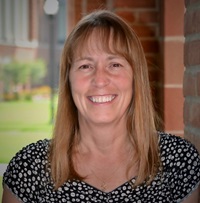
Anne Beatty is the Deloitte & Touche Endowed Chair in Accounting at The Ohio State University Fisher College of Business and is a Research Fellow at the Cambridge University Judge School of Business. She is a Sloan Foundation Industry Center Fellowship recipient and was a Fellow of the Wharton Financial Institutions Center. She served as a visiting scholar at the Federal Reserve Bank of St. Louis and has presented her work at the Bank for International Settlement, The Bank of Spain and the Federal Deposit Insurance Corporation. In 2021 she received the American Accounting Association Financial Reporting Section’s Distinguished Ph.D. mentoring award. She has served as an editor at the Accounting Review and as an associated editor at the Journal of Accounting & Economics and Management Science.
Her research focuses on the economic effects of accounting with special interest in the importance of accounting in bank regulation and loan contracting and she has published widely in the bank accounting area. She received a Ph.D. in management from the Massachusetts Institute of Technology Sloan School of Business in 1992, an M.B.A. from the University of Chicago Booth Graduate School of Business in 1983, and a B.A. in economics from The College of the University of Chicago
Michelle W. Bowman took office as the Vice Chair for Supervision of the Board of Governors of the Federal Reserve System on June 9, 2025, for a four-year term. Ms. Bowman has served as a member of the Board of Governors of the Federal Reserve System since taking office on November 26, 2018, to fill an unexpired term ending January 31, 2020. She was reappointed to the Board on January 23, 2020, and sworn in on January 30, 2020, for a term ending January 31, 2034.
Prior to her appointment to the Board, Ms. Bowman served as the state bank commissioner of Kansas from January 2017 to November 2018. She also served as vice president of Farmers & Drovers Bank in Kansas from 2010 to 2017. In addition to her experience in the banking industry, Ms. Bowman worked in Washington, D.C. for Senator Bob Dole of Kansas from 1995 to 1996 and served as a counsel to the U.S. House Committee on Transportation and Infrastructure and the Committee on Government Reform and Oversight between 1997 and 2002. In 2002, Ms. Bowman became director of congressional and intergovernmental affairs at the Federal Emergency Management Agency. From 2003 to 2004, she served as Deputy Assistant Secretary and policy advisor to Homeland Security Secretary Tom Ridge.
Following her time in Washington, D.C., Ms. Bowman led a government and public affairs consultancy based in London before returning to Kansas in 2010. Ms. Bowman received a BS in advertising and journalism from the University of Kansas and a JD from the Washburn University School of Law. She is a member of the New York Bar. Ms. Bowman is married with two children.

WILLIAM YOUNG CARROLL, JR. has served as president and chief executive officer of SmartBank since its inception in 2007 and is also a founding director of SmartBank. Headquartered in Pigeon Forge, Tennessee, SmartBank is a full-service commercial bank providing banking, investment, insurance, and mortgage financial services with 42 branches spanning Tennessee, Alabama, and Florida. SmartFinancial, Inc., located in Knoxville, Tennessee, is the holding company for SmartBank.
Mr. Carroll began his career with Kraft CPAs in Nashville, Tennessee. He joined Citizens National Bank in 1992 where he held various management positions, including executive vice president and chief financial officer. He also served on the Bank’s board of directors as well as the loan committee and asset liability committee. Mr. Carroll is a member of the board of directors of the Federal Reserve Bank of Atlanta. He also serves on the boards of SmartFinancial and SmartBank, SBK Insurance, and serves as chair of the Tennessee Bankers Association. He is a member of the University of Tennessee Haslam College of Business Finance Advisory Council and the FIS CEO Strategic Planning Advisory Council. Mr. Carroll previously served on the boards of the Federal Reserve Bank of Atlanta’s Nashville Branch, The Sevierville Planning Commission, Sevier County Economic Development Council, and the Great Smoky Mountain Institute at Tremont.
Mr. Carroll earned his BS in business administration from the University of Tennessee.

Jacelly Cespedes is an Assistant Professor of Finance at the University of Minnesota, Carlson School of Management. She earned a Ph.D. in finance at The University of Texas at Austin. Jacelly’s research interests include financial intermediation, consumer finance, and financial technologies (Fintech). She has published in top academic journals, such as the Review of Financial Studies.
 Charlie E. Clark was appointed Director of the Washington State DFI on April 1, 2019. He first joined DFI in 2012 and served in the roles of Division of Consumer Services Enforcement Program Manager and Division Director before serving as agency Deputy Director beginning in November 2016. Prior to joining the DFI, Charlie represented the DFI as its lead litigation counsel as an Assistant Attorney General from 2005 through 2011. Prior to joining the Attorney General’s Office, he worked as an attorney in private practice. Charlie sat on the Board of Directors of the American Association of Residential Mortgage Regulators from 2014 to 2023, serving as its President from 2018 to 2020. He also currently sits on the Board of Directors and serves as Chair of the Conference of State Bank Supervisors, having previously served as Secretary, Treasurer and Chair-Elect. He received his undergraduate degree in Accounting and an M.B.A. from California State University, Sacramento. He received a J.D. degree from the University of the Pacific, McGeorge School of Law.
Charlie E. Clark was appointed Director of the Washington State DFI on April 1, 2019. He first joined DFI in 2012 and served in the roles of Division of Consumer Services Enforcement Program Manager and Division Director before serving as agency Deputy Director beginning in November 2016. Prior to joining the DFI, Charlie represented the DFI as its lead litigation counsel as an Assistant Attorney General from 2005 through 2011. Prior to joining the Attorney General’s Office, he worked as an attorney in private practice. Charlie sat on the Board of Directors of the American Association of Residential Mortgage Regulators from 2014 to 2023, serving as its President from 2018 to 2020. He also currently sits on the Board of Directors and serves as Chair of the Conference of State Bank Supervisors, having previously served as Secretary, Treasurer and Chair-Elect. He received his undergraduate degree in Accounting and an M.B.A. from California State University, Sacramento. He received a J.D. degree from the University of the Pacific, McGeorge School of Law.

Mustafa Emin is an assistant professor of finance at the University of Alabama. Mustafa's research interests include financial intermediation, private debt, and securitization. His research on credit markets has been presented at various conferences, including the annual meetings of AFA, CICF, FMA, WFA, and the NBER Summer Institute. Mustafa completed his Ph.D. degree in finance at the University of Florida. He also holds an M.Sc. degree in finance from Bocconi University and a B.Sc. degree in physics from Koc University.
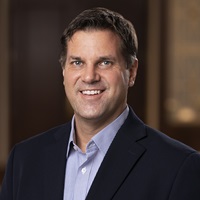
Jim Fuchs is a vice president at the Federal Reserve Bank of St. Louis, overseeing the operations of the bank’s Applications, Credit, Reserves, Statistics, Business Line Training Services, Quality Assurance, Digital Transformation Consulting, Supervision Policy Research and Analysis, and Supervision Outreach units. Fuchs also oversees a wide range of national outreach programs developed by the St. Louis Fed for community bankers and is a member of several Federal Reserve System workgroups focused on community banking issues. Fuchs also chairs the organizing committee the Federal Reserve/ Conference of State Bank Supervisors’/FDIC annual Community Banking Research Conference. Before joining the St. Louis Fed, Fuchs served as a banking policy adviser and directed financial communications for New York State Comptroller Thomas DiNapoli. Earlier, he was chief of staff to former New York State Banking Superintendent Diana Taylor and served as an advisor to New York City Mayor Michael Bloomberg. He is a former captain in the United States Air Force serving during Operations Desert Storm, Enduring Freedom, and Iraqi Freedom. Fuchs received his MBA from the University of Missouri-St. Louis and his Bachelor of Science from the U.S. Air Force Academy. He also earned a graduate certificate in communications from the University of Oklahoma and a teaching certificate in secondary mathematics from City College in New York. In addition, Fuchs is a graduate of the Department of Defense Information School and the American Academy of Dramatic Arts. He is also a graduate of the Stonier Graduate School of Banking at the University of Pennsylvania’s Wharton School of Business.

Martin Gruenberg is the chairman of the FDIC Board of Directors. He has been a member of the FDIC Board since August 2005 and previously served as Vice Chairman from August 2005 to July 2011 and as Chairman from November 2012 to mid-2018. He has also served as Acting Chairman on a number of occasions. Prior to joining the FDIC, Gruenberg served as senior counsel to Sen. Paul S. Sarbanes (D.-Md.) on the staff of the Senate Committee on Banking, Housing, and Urban Affairs from 1993 to 2005. He also served as staff director of the Banking Committee's Subcommittee on International Finance and Monetary Policy from 1987 to 1992. In addition, he served as chairman of the Federal Financial Institutions Examination Council from April 2017 to June 2018. Beginning February 15, 2022, Gruenberg assumed the role of chairman of the Resolution Steering Group (ReSG) of the Financial Stability Board. Since June 2019, Gruenberg has served as chairman of the board of directors of the Neighborhood Reinvestment Corporation (NeighborWorks America), and he has been a board member since April 2018. He received his Juris Doctor from Case Western Reserve Law School and his Bachelor of Arts from Princeton University, Princeton School of Public and International Affairs.

Dmytro Holod is an Associate Professor and Area Head of Finance in the College of Business at Stony Brook University. His main research interests are in the areas of financial intermediation and corporate finance. His research has been published in finance and economics journals, including the the Journal of Money, Credit and Banking; the Journal of Banking and Finance; and Financial Management. Holod teaches corporate finance and banking to undergraduate and graduate students. He received a Ph.D. in Economics from the University of Kentucky.

Edward Kim is an assistant professor of finance at the Stephen M. Ross School of Business, University of Michigan. Kim's main research interests are in the areas of banking, fintech, and household finance. He received a Ph.D. in Finance from UCLA and a B.S. in Economics from MIT. Prior to his doctoral studies, Kim was a research assistant at the Federal Reserve Board of Governors in Washington, D.C.

Orvin Kimbrough, author of Twice Over A Man: A Fierce Memoir of an Orphan Boy Who Doggedly Determined a Finer Life, and Chairman and CEO of Midwest BankCentre, St. Louis' second-largest privately-owned local bank, leverages the bank's robust financial services to empower individuals, bolster businesses, and invigorate neighborhoods. A leading figure in community and economic development, Midwest BankCentre's initiatives under his tenure, including Impact Banking and the Rising Together Foundation, reflect his personal journey from foster care to corporate and community leadership. He serves on a number of public and private boards and is currently a Commissioner with the National Academy of Medicine and the St. Louis Federal Reserve's Community Depository Institutions Advisory Council.

Anya Kleymenova is a Principal Economist at the Board of Governors of the Federal Reserve System. She has expertise in the areas of information economics and financial and disclosure regulation. Her research focuses on financial institutions, liquidity, disclosure, real effects of regulatory changes, and access to credit. Anya received her Ph.D. from London Business School. She also has an undergraduate degree in finance from Georgetown University, McDonough School of Business, an MSc in economics from the London School of Economics, and an MSc in finance and MRes in accounting from London Business School. Anya was a Principal in the financial economics group of Charles River Associates in London, U.K. before her doctoral studies and a visiting researcher at the Bank of England during the last two years of her Ph.D. Prior to joining the Board, Anya was an assistant professor of accounting at the University of Chicago Booth School of Business.
 Shohini Kundu is an Assistant Professor of Finance and Law at the University of California, Los Angeles and a Research Affiliate of the CEPR. Her research focuses on financial intermediation and macroeconomics, security design and externalities of financial contracts, and emerging market finance. She received a PhD in Finance and MBA from the University of Chicago Booth School of Business, and a BA in Economics with high honors and distinction from Cornell University.
Shohini Kundu is an Assistant Professor of Finance and Law at the University of California, Los Angeles and a Research Affiliate of the CEPR. Her research focuses on financial intermediation and macroeconomics, security design and externalities of financial contracts, and emerging market finance. She received a PhD in Finance and MBA from the University of Chicago Booth School of Business, and a BA in Economics with high honors and distinction from Cornell University.
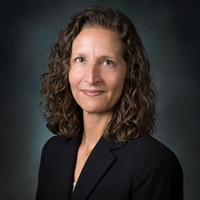
Karen Lawson is executive vice president for policy and supervision at the Conference of State Bank Supervisors (CSBS) and member of the CSBS executive leadership team. Lawson oversees the policy and supervision business unit, including the legislative, regulatory, and bank/nonbank supervisory processes teams. She also serves as the staff deputy to the state banking supervisor member of the Financial Stability Oversight Council.
Lawson joined CSBS in July 2021 as senior vice president for policy with responsibility for coordinating public policy development and advocacy efforts.
Prior to joining CSBS, Lawson worked for the Michigan Department of Insurance and Financial Services for over 25 years and led the agency’s bank regulatory program for nine years. She served on the CSBS Board of Directors and chaired or served on a number of prominent CSBS committees. Karen was also an active member of the Federal Financial Institutions Examination Council as a member and chair of the State Liaison Committee representing state regulators on the Council.

Thomas S. Leavitt is president and CEO of Northfield Savings Bank, a $1.5 billion Vermont mutual founded in 1867. Leavitt has led NSB since 2014 and serves on the company’s board. He previously was president and CEO of MountainOne Bank in Massachusetts and had lengthy service on the leadership team of Merchants Bank in Vermont. Earlier in his career, Leavitt performed in national roles with industrial and safety distribution companies. He has served on numerous non-profit boards, commissions, and advisory committees, earning community and industry recognition. Leavitt holds a B.S. from the University of New Hampshire and an MBA from the University of Pennsylvania.

Elizabeth Magennis is the president of ConnectOne Bank, the bank subsidiary of ConnectOne Bancorp, Inc. (Nasdaq: CNOB). ConnectOne is a leading commercial bank with over $9.7 billion in assets, serving the New York, New Jersey, and South Florida markets. Ms. Magennis holds over 30 years of experience in the banking industry. As President of ConnectOne, she is responsible for the growth, function, and strategic direction of the bank. She joined ConnectOne Bank in 2006 and has played an integral role in growing the company to a top-performing bank with industry-leading metrics. Under her leadership, the bank has experienced record organic growth, expanded its footprint into new markets, built a robust loan portfolio, and made significant strides into the digital space, including launching online accounts and a cloud-based loan management system. In 2020, she led the Bank’s response to the Paycheck Protection Program (PPP), supporting thousands of small businesses in a time of crisis. Ms. Magennis serves as a thought leader in both the banking industry in the business community, speaking on business trends, building high-performance cultures, and the evolving banking model. Prior to joining CNOB, Ms. Magennis held roles in the banking industry such as Vice President and Commercial Loan Officer at Bergen Commercial Bank, SBA Underwriter/Lender at Sovereign Bank, Vice President and Branch Manager of Commercial Bank of NY, and Senior Personal Banker for Bank of New York.
Ms. Magennis graduated from Ramapo College of New Jersey with a B.A. in Psychology, and from St. John’s University with an A.S. in Business Administration. Additionally, Ms. Magennis studied at the American Bankers Association (ABA) Graduate Commercial Lending School at Southern Methodist University and trained at the National Development Council with a concentration on Economic Development Finance and Business Credit. Ms. Magennis has been recognized as a leader in both her industry and community and has been honored as an NJBiz Leaders in Finance honoree and ROI-NJ Influencer for Women in Business, and named to Crain’s Notable Women in Banking and Finance. She was also the Treasurer and Executive Board Member of the Manhattan Chamber of Commerce.

Alberto G. Musalem is the president and CEO of the Federal Reserve Bank of St. Louis. In this role, he participates on the Federal Reserve’s Federal Open Market Committee, or FOMC,
which meets at least eight times each year to set the direction of U.S. monetary policy. He also oversees the activities of the Eighth Federal Reserve District at its St. Louis headquarters and branches in Little Rock, Ark., Louisville, Ky., and Memphis, Tenn. These activities include economic research, fiscal agent responsibilities for the U.S. Treasury, supervision of District financial institutions, community development, and regional payments, transparency, technology and support functions. As the St. Louis Fed president, Musalem makes public outreach a priority, talking regularly with people and communities across the Eighth District about the economy. Engaging with Main Street provides him with important insights as he represents the District at the monetary policy table. Musalem is an economist and executive with nearly three decades of prior public and private sector experience in economic policy, finance and markets. He earned a Ph.D. in economics from the University of Pennsylvania. He also holds master’s and bachelor’s degrees in economics from the London School of Economics and Political Science.

Dr. Narayanan’s academic research focuses broadly on issues related to banking and financial markets. His research has been published articles in leading academic journals including the Journal of Financial Economics, Review of Financial Studies and Journal of Money Credit and Banking. He has delivered lectures to and conducted seminars on various topics for executives and technocrats in Brazil, China, the Czech Republic, India, Malaysia and South Africa. His interviews and commentary have been featured in national media outlets such as the Wall Street Journal, CNN/Money, Bloomberg, Fortune as well as in regional and local media outlets such the Times Picayune, The Advocate, Baton Rouge Business report, WBRZ-TV, and WWL-Radio.
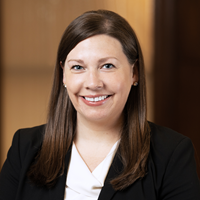
Kathleen Navin is a senior business economist at the Federal Reserve Bank of St. Louis in the division of Supervision. Navin’s responsibilities pertain to analyzing and presenting on economic and banking conditions in the United States and regionally. Prior to joining the Federal Reserve Bank of St. Louis, Navin held the position of Economics Executive Director in U.S. Economics at S&P Global Market Intelligence, joining the firm through the acquisition of Macroeconomic Advisers. In this role, she produced analysis on economic data and forecasts related to the US economic outlook and developed alternative macroeconomic scenarios for use in bank stress testing. She was previously a research associate at the Federal Reserve Bank of Kansas City in the division of Macroeconomics and Monetary Policy. Navin graduated with her Bachelor of Science in Economics and her Master of Arts in Economics from the University of Missouri, Columbia, Missouri. Navin is an active member of the National Association for Business Economics (NABE), currently serving a three-year term as a member of its board of directors. She became a member of NABE’s inaugural class of Certified Business Economists in 2015.

T. Corey Neil serves as President and Chief Executive Officer at The Bank of Tampa and is a member of its Board of Directors. Effective January 1, 2024, he also accepted the title of Chief Executive Officer of the Tampa Bay Banking Company, The Bank of Tampa’s holding company. He has been with the bank for more than 21 years and has 28 years of banking experience, all of which have been spent in Tampa Bay. Prior to joining The Bank of Tampa in 2003, Corey was employed by SunTrust Bank.
Corey is a passionate leader, focused on strategic initiatives aimed toward growing The Bank of Tampa in the greater Tampa Bay area. A key aspect of this goal is holding steady to The Bank of Tampa’s mission of building meaningful relationships and providing the highest levels of personalized service in meeting the financial needs of professionals, families, and private business owners throughout Tampa Bay. Prior to his role as President and Chief Executive Officer, Corey served in various leadership roles throughout the bank. He began his professional career as a commercial banker.
Civic involvement became a cornerstone of Corey’s professional career as a result of the valuable experience he gained as a member of The Tampa Connection’s Class of 2002. After graduating, he furthered his association with The Tampa Connection by serving a six-year term on its Board of Directors, including service as the 2007 Chairman. In addition, Corey is also a graduate of Leadership Tampa’s Class of 2010, and he remains as an alumni member.
Currently, Corey serves on the Board of Directors for Tampa General Hospital holding the position of Investment Committee Chair on the Executive Committee of the Board. He remains on the Board of Trustees for the Tampa General Hospital Foundation, having served as the Chairman from 2021-2023. Additionally, he serves on the boards of the Hillsborough Education Foundation, The University Club of Tampa, and the Florida Bankers Association. Previously, he served on the Board of Directors for the Greater Tampa Chamber of Commerce as the Finance Co-Chairman of its Executive Committee.
Corey received his Bachelor of Science in finance from Florida State University in 1996 and completed the Stonier Graduate School of Banking in 2007. He continued his executive education by completing the Columbia University Business School Advanced Management Program in 2015.

Dr. Greg Nini is the Marshall Austin Endowed Term Professor in Finance at the LeBow College of Business of Drexel University.
At Drexel, Dr. Nini teaches classes and conducts research in a variety of areas related to banking, corporate finance, and capital markets. Dr. Nini is also a fellow of the Wharton Financial Institutions Center and a visiting scholar at the Federal Reserve Bank of Philadelphia. Before joining Drexel, Dr. Nini was on the faculty at the Wharton School of the University of Pennsylvania and an economist at the Federal Reserve Board in Washington D.C.
Dr. Nini holds a Ph.D. in applied economics from the Wharton School at the University of Pennsylvania and a B.A. in mathematics and economics from Swarthmore College.

Matthew Plosser is a Financial Research Advisor in Banking Studies within the Financial Intermediation Policy Research Division. He is also a Visiting Lecturer in the Department of Economics at Princeton University.
Matt’s research interests include financial intermediation, banking supervision and household finance. His research has appeared in the Journal of Finance, The Journal of Financial Economics, the Review of Financial Studies, and the Journal of Financial Intermediation.
He is currently working on research related to assessing bank fragility and evaluating heterogeneity in depositor behavior. In addition to his research, Matt works on model development initiatives for the Federal Reserve stress testing program.
Matt received a PhD and an MBA from the University of Chicago, Booth School of Business in 2012. Prior to graduate school, he worked in the investment banking and asset management industries. His undergraduate degree is from Princeton University.
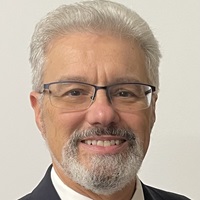
Antonio Salazar is the commissioner of the Maryland Department Financial Regulation. Commissioner Salazar is an attorney with a distinguished 39-year career in the banking and financial services sector. He is currently serving his eighth year as Maryland’s Commissioner of Financial Regulation. Under his leadership, Maryland’s consumer financial protection agency oversees the chartering, licensing, and supervision of all state-chartered depository institutions and financial service providers. As Maryland’s financial regulator, Commissioner Salazar is an active member of CSBS, where he serves as Chair of the Board of Directors and is a member of the Non-Depository Supervisory Committee. He maintains regular contact with federal regulatory authorities, other state bank regulators, and state and federal legislators. Committed to strengthening community banks and the dual banking system, he has led his office in early adoption of the State Examination System, sponsored various financial service model laws such as the Model Money Transmission Act, and achieved accreditation as a banking, mortgage, and money service business regulatory agency. His office has also championed the Maryland Access to Banking Act, incentivizing community bank investments in underbanked communities. In addition to his regulatory duties, Commissioner Salazar is a member of the Maryland Commission on Financial Education and Capability. He is honored to be a part of the AIR TechSprint judging team.
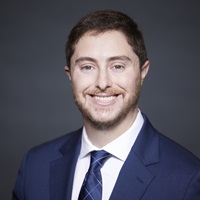
Joey Samowitz is senior director of policy development with the Conference of State Bank Supervisors (CSBS). At CSBS, he leads a team of analysts in crafting policy positions and managing workflows to inform action by state regulators. He provides thought leadership in several interagency groups and formerly represented the states on the FSOC digital asset working group. He is also the staff lead on the CSBS Bankers Advisory Board and provides key research on complex topics like digital assets, and regulatory proposals. He received his bachelor’s degree from the University of Maryland and is a graduate of the Graduate School of Banking at Colorado. Joey is currently studying for his MBA at the University of Nebraska-Lincoln. Joey joined CSBS in 2017.

Jeff Schmid is the president and chief executive officer of the Federal Reserve Bank of Kansas City.
In his role, Schmid leads a workforce of close to 2,000 employees in Kansas City and its branch offices in Omaha, Denver and Oklahoma City.
The Kansas City Fed is responsible for conducting monetary policy, providing financial services to depository institutions and the U.S. Treasury; and supervising nearly 1,000 banking organizations across its seven-state region, which includes western Missouri, Kansas, Nebraska, Oklahoma, Colorado, Wyoming and northern New Mexico.
Schmid represents the Tenth District on the Federal Open Market Committee, which sets monetary policy for the United States. He participates in each FOMC meeting and will be a voting member in 2025.
Before joining the Kansas City Fed in August 2023, he served as president and CEO of the Southwestern Graduate School of Banking at Southern Methodist University. He has several decades of experience leading banks and began his career as an examiner for the Federal Deposit Insurance Corp.
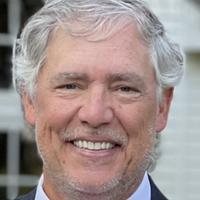
Thomas Siems is the chief economist with the Conference of State Bank Supervisors (CSBS). He joined CSBS in 2019 after serving 34 years at the Federal Reserve Bank of Dallas and more than 20-year teaching at Southern Methodist University in Dallas. Siems earned a Bachelor of Science in industrial and operations engineering from the University of Michigan and his Master of Science and Ph.D. degrees in operations research from Southern Methodist University. Siems is also a graduate of the Graduate School of Banking at Colorado and has published more than 75 articles in academic, Federal Reserve and referred journals. He delivered a 2015 TEDxSMU Talk, “The Wealth of Innovations,” and has authored five children’s picture books, including “The Dangerous Pet,” which poetically helps readers understand the dangers of debt.
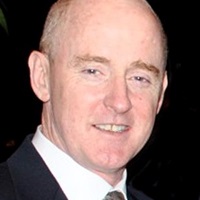
Brian Sullivan is a senior media relations officer with the Federal Deposit Insurance Corp. (FDIC) and host of the FDIC Podcast. For more than 20 years, he has served in the public sector as a spokesperson and public affairs specialist for the FDIC, the U.S. Department of Housing and Urban Development (HUD), and the Federal Housing Administration (FHA). Prior to his government experience, Sullivan spent the first 20 years of his professional career in broadcasting, which included reporting, editing and producing local and national news at Milwaukee Public Radio, the former Mutual Broadcasting System, Westwood One, NBC Radio and WJLA-TV in Washington, D.C. He received his Bachelor of Arts in journalism from the University of Wisconsin-Madison. Growing up in the D.C. area, Sullivan will tell you he got his real start in the media early on when he delivered newspapers for the Washington Post and Evening Star.
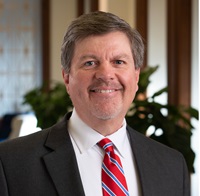
Carl White is the senior vice president of the Supervision, Credit, Community Development and Learning Innovation division at the Federal Reserve Bank of St. Louis. White has more than 35 years of experience in the Supervision Division of the Federal Reserve Bank of St. Louis. He is currently senior vice president of the Supervision, Credit and Learning Innovation Division. He has served in various other roles within Safety and Soundness, beginning his career as an examiner. Mr. White has served as lead instructor and course developer on numerous Fed System training courses, including an international assignment in Brazil. In addition, he served as the central point of contact for the District’s largest state member bank before and during the financial crisis. He and his team were nominated for the District’s President’s Award for Innovation as a result of efforts to implement and enhance off-site loan review and examination processes. Mr. White holds a bachelor’s degree with a major in finance from St. Louis University.

Rohan Williamson is Professor of Finance and the Bolton Sullivan and Thomas A. Dean Chair of International Business at the McDonough School of Business at Georgetown University. He is also a research Associate at the National Bureau for Economic Research. He has served as Interim Dean of the McDonough School of Business and a member of the Academic Leadership Council. Professor Williamson specializes in risk management, corporate governance, corporate investment decisions and corporate liquidity.
His research has appeared in top academic journals as well as practitioner-oriented publications. He has presented research and served as a panelist or speaker at conferences and seminars around the world. Professor Williamson’s research has been awarded the Michael Jensen Prize for the best paper published in the Journal of Financial Economics and the William Sharpe Best Paper Award in the Journal of Financial and Quantitative Analysis.
Professor Williamson is Chairman of the Board of Directors for TIAA Trust and was Chairman of the Board for TIAA Bank and served on the Risk, Trust, Nominating and Governance and Executive Committees. He is a member of the TIAA, FSB Holdings Inc. which is the holding company for the bank and other assets. He also serves as the Chairman of the Board of Document Systems, Inc a small IT Services and IT Consulting firm in Washington, DC. In addition, he serves on the Internal Advisory Committee for the Lombardi Comprehensive Cancer Center at Georgetown University and the Finance Advisory Board of the Fisher College of Business at The Ohio State University.
Professor Williamson received his PhD and MA from The Ohio State University, an M.B.A from Atlanta University and a Bachelor of Mechanical Engineering from the University of Dayton. He received The Ohio State University Pace Setters Award and is a member of Beta Gamma Sigma Business Honor Society.
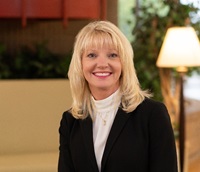
Mary Willis is the Chairman of the Board, Chief Executive Officer, and President of Fidelity BancShares N.C., Inc., and Fidelity Bank, a North Carolina-based commercial bank with $3.9 billion in assets and 57 branches across North Carolina, Southern Virginia, and Upstate South Carolina. Fidelity BancShares was named the Best Performing U.S. Community Bank in 2024 by S&P Global Market Intelligence.
With over 30 years of service at Fidelity Bank, Mary began her career as a part-time teller during high school. Through her unwavering commitment to excellence and leadership, she steadily advanced through various management roles. In 2010, she was appointed Chief Executive Officer and President of BancShares and Fidelity Bank, and in 2011, she assumed the role of Chairman of both Boards. Prior to her current leadership roles, she served as Chief Financial Officer from 1999 to 2010.
Mary's commitment to her community is as strong as her dedication to Fidelity Bank. She holds a Bachelor of Science in Accounting from East Carolina University and is a licensed Certified Public Accountant in North Carolina. Her numerous non-profit commitments include serving as a Member of the North Carolina State Banking Commission, a Trustee and Vice-Chairman of the Board at Campbell University, and a Director for the North Carolina Community Foundation, where she also chairs the Finance Committee. Additionally, she is a past Chairman of the North Carolina Bankers Association.

Cathy Zhang is a post-doctoral associate in accounting at the University of Florida’s Warrington College of Business. Her research interests include household finance, disclosures, and banking. Cathy’s dissertation provides empirical evidence of systematic overpayment in mortgage origination fees and examines practices that can help borrowers secure better mortgage terms. Before entering academia, Cathy was a senior derivatives trader in Sucden Financial, a member firm of London Metals Exchange. She holds a Ph.D. in Finance from the University of Florida and an M.S. in Accountancy from the University of Notre Dame.
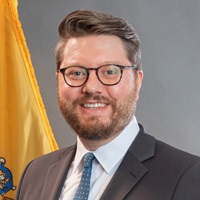 Justin Zimmerman was appointed to lead the New Jersey Department of Banking and Insurance by Governor Phil Murphy in June 2023.
Justin Zimmerman was appointed to lead the New Jersey Department of Banking and Insurance by Governor Phil Murphy in June 2023.As Acting Commissioner, Zimmerman serves as the chief regulator of New Jersey’s insurance industry, one of the largest in the nation, all state-chartered banks and credit unions, as well as consumer finance licensees. He also leads Get Covered New Jersey, the state’s official health insurance marketplace.
Zimmerman joined the Department in January 2018, serving as the Department’s Chief of Staff, where he oversaw the executive management team and managed all aspects of the department’s policy implementation, under the direction of the Commissioner.
During his tenure as Chief of Staff, the department developed and implemented numerous consumer protections and programs impacting countless New Jerseyans, including New Jersey’s out of network law, student loan protections, mortgage servicers licensing, expanding access to reproductive health care and Get Covered New Jersey. Since its inception in 2020, Get Covered New Jersey transformed New Jersey’s health insurance landscape for consumers in the individual market, ensuring that more New Jerseyans have greater access to quality, affordable health insurance. New Jersey was the first in the nation to open its marketplace with enhanced state subsidies that lower premiums for most enrollees.
Zimmerman also coordinated the Department’s COVID-19 response, working with regulated entities across all sectors to provide relief to New Jersey’s residents during the pandemic, ranging from insurance premium relief and mortgage forbearance to student loan relief and the expansion of telemedicine without cost sharing.
Acting Commissioner Zimmerman has built an extensive career in public service. Prior to joining Governor Murphy's Administration, Zimmerman served as Chief of Policy and Legislation to the New Jersey State Senate President Pro Tempore, where he focused on expanding access to quality affordable healthcare for New Jerseyans, expansion of voting rights and civil rights. He began his career as a public servant working as a Briefing Aide to Governor Jon Corzine and Director of Legislative and Intergovernmental Affairs for the New Jersey Department of State. Prior to joining government service, he was an organizer in Morris County, New Jersey and Harrisburg, Pennsylvania.
Zimmerman was born and raised in New Jersey, growing up in Essex and Union Counties. He received his Bachelor of Arts from Mary Washington College. He lives in Verona with his wife, Laura, and their two children.











































